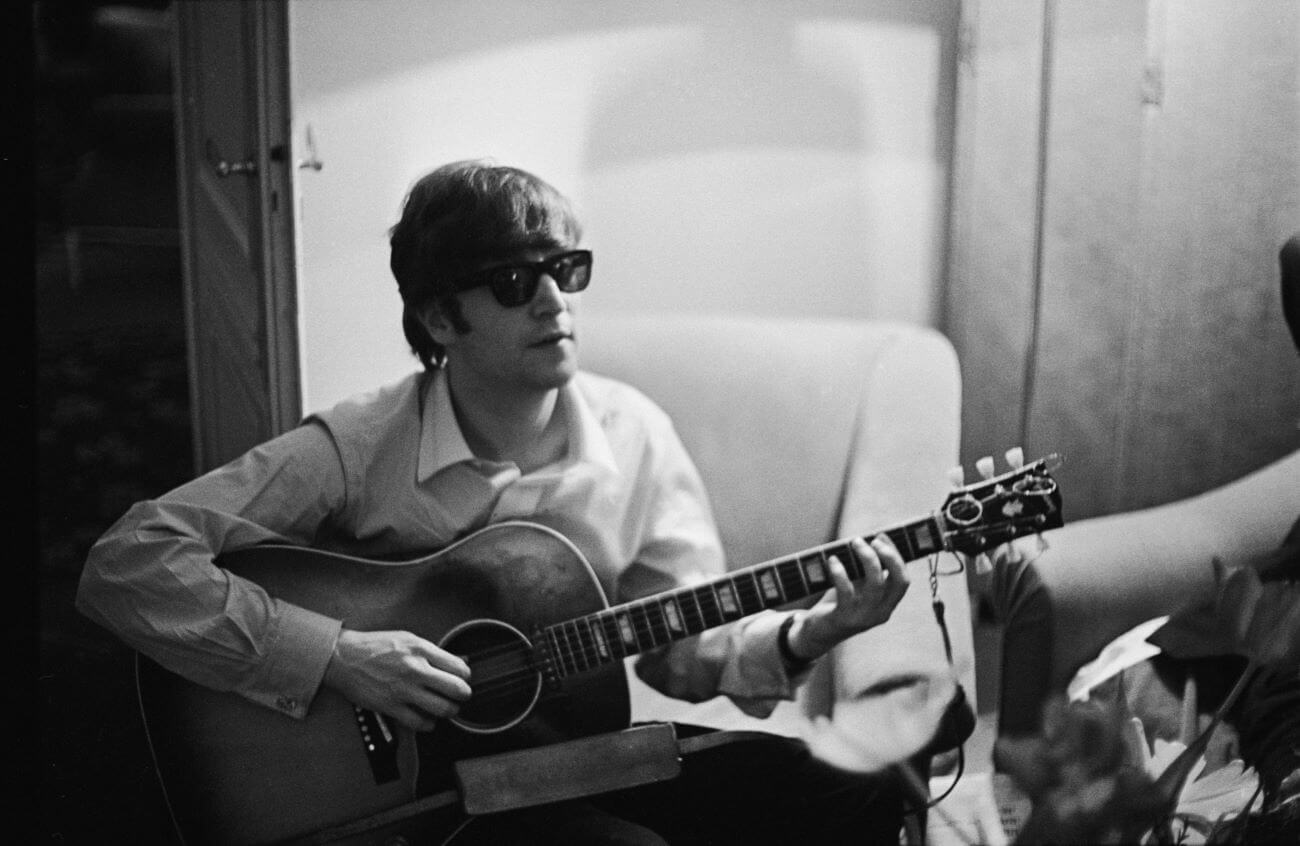
John Lennon Was Constantly Paranoid He Would Never Write Another Song
John Lennon wrote a prolific number of songs in his time with The Beatles and his solo career. He won seven Grammys and picked up even more nominations. Despite all this success, Lennon constantly worried his well of creativity was drying up. According to one of his closest friends, Lennon dealt with lingering paranoia that he would never write another good song.
John Lennon worried that writer’s block would keep him from writing another song
Lennon met his friend Pete Shotton at school, and they remained close for life. Lennon bounced song ideas off of Shotton. As a result, Shotton had an intimate view of Lennon’s songwriting process. He admitted that doubt played a significant role in Lennon’s creative life. He only wrote when he felt inspiration or if he was facing down a Beatles deadline. Often, he dealt with writer’s block while trying to stay on schedule.
“At Kenwood, John generally wrote only when the spirit moved him — unless, of course, the Beatles were due in the studio to record a new album; in that case, he would steel himself for a week or two of virtually nonstop writing,” Shotton wrote in the book The Beatles, Lennon, and Me. “On several such occasions his efforts were confounded by a stubborn case of writer’s block.”
Shotton said the bouts of writer’s block made Lennon fear he would never write a good song again.
“‘My biggest paranoia,’ he confided to me during one of these dry spells, ‘is that maybe I haven’t got another song in me, that I’ll never be able to write another one again.’ Fortunately, however, his muse always did come through in the end.”
John Lennon pulled from mundane life events to write a song
Lennon did not have a daily writing practice. Instead, he wrote songs when the inspiration struck him. The inspiration didn’t have to be anything significant; commercials and children’s drawings provided creative fuel.
“The stimulus for the songs John wrote in Weybridge usually derived from something he heard or saw — a TV advertisement, an old poster, a newspaper headline, or even (in the case of “Lucy in the Sky With Diamonds“) a drawing by his son Julian,” Shotton explained. “The words almost always preceded the music — which, in turn, was generally composed on the piano rather than the guitar.”
Lennon never learned to formally play the piano, but he still found it helpful to work out a melody after he wrote lyrics.
“After John had completed a set of lyrics, he would prop it up on the piano stand in the little morning room, and let his fingers wander over the keys in search of a suitable melody,” Shotton wrote. “Unlike Paul McCartney, however, John had never bothered to learn to play the piano properly; like Irving Berlin, he seemed content to peck out his tunes with only one finger.”
Paul McCartney inspired his former Beatles bandmate to write music
The Beatles’ recording deadlines fueled Lennon’s writing sessions in the 1960s. When the band broke up, he began using former bandmate Paul McCartney to push him to write. The former bandmates were not on good terms after the split. Therefore, anytime McCartney wrote a good song, Lennon felt driven to write something better.
“You know, I heard a story recently from a guy who used to record with John [Lennon] in New York, and he said that John would get lazy — but then he’d hear a song of mine where he thought, ‘Oh, s***, Paul’s putting it in, Paul’s working!'” McCartney told Billboard in 2001. “Apparently [Coming Up] was one song that got John recording again. I think John just thought, ‘Uh oh, I better get working, too’ [beams]. I thought that was a nice story.”
The bandmates had always been competitive. Luckily they were able to use it to their benefit.


